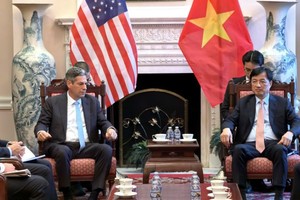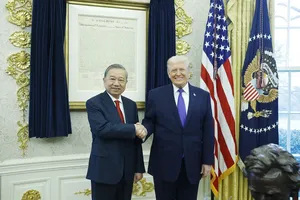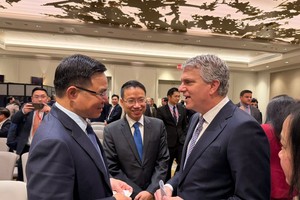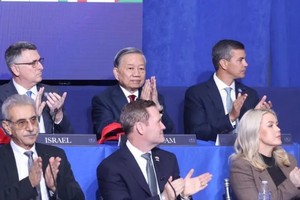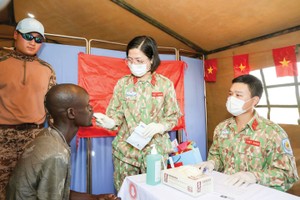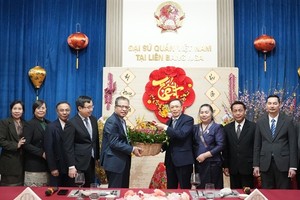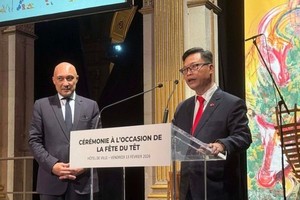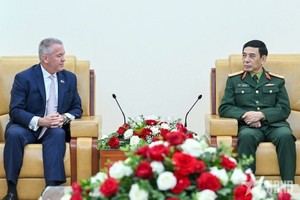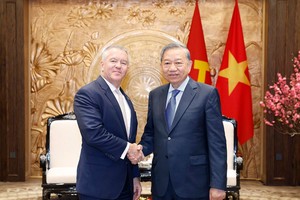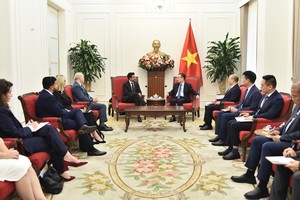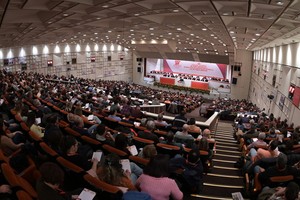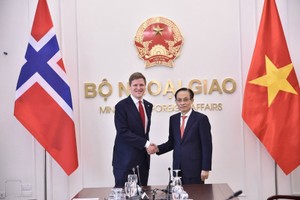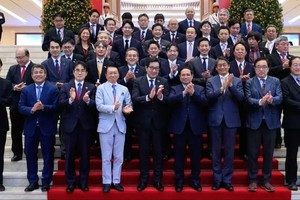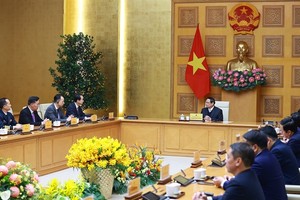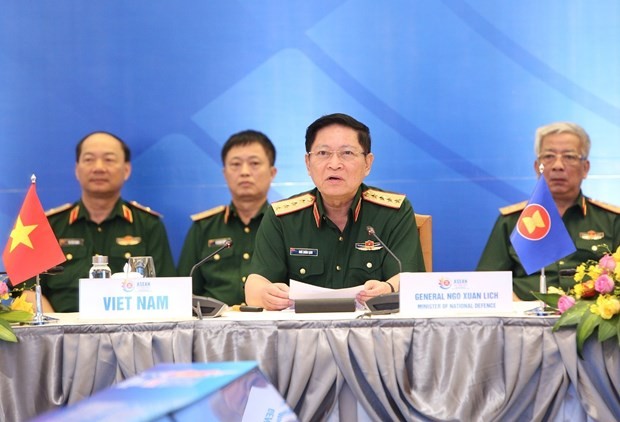
The event was attended by Vietnamese Minister of National Defence Gen. Ngo Xuan Lich, Deputy Minister of National Defence and head of ADSOM+ Vietnam, Sen. Lieut. Gen. Nguyen Chi Vinh, heads of ADSOM+ of other ASEAN member nations, and representatives from the group’s partner countries, including Russia, China, the US, Japan, the Republic of Korea, Australia, New Zealand and India.
Participants shared experiences of countries’ armies in responding to the disease and discussed activities being implemented within the ASEAN Defence Ministers’ Meeting Plus (ADMM+) framework and preparations for ADSOM and ADSOM+ that were scheduled for August in Vietnam and ADMM and ADMM+ in late 2020.
In his remarks, Lich said the presence of the attendees at the event showed their strong cooperation and support for Vietnam as Chair of ASEAN 2020 as well as mechanisms in which ASEAN plays a central role.
The ongoing COVID-19 pandemic has become a major non-traditional security challenge that negatively affects all aspect of society around the world, he said, emphasising the need to promote the role played by multilateral cooperation institutions and mechanisms in addressing the problem.
Sharing difficulties facing ASEAN member nations amid the pandemic, Lich expressed his belief that with their cooperative efforts the bloc’s member states will together overcome these difficult times and soon bring life back to normal.
In the spirit of “Cohesive and Responsive” in ASEAN Year 2020, ASEAN and its partners have carried out many effective online activities.
Lich praised the efforts of ASEAN member states’ military medical forces, which jointly organised an online drill on COVID-19 prevention and control recently, saying that this was a practical activity that contributes to realising the results of the ASEAN Special Summit on COVID-19 and the joint statement of the ASEAN Defence Ministers on defence cooperation in response to the disease.
The meeting offered an opportunity for the bloc to compare notes on global and regional security situation in the context of COVID-19, thus consolidating their mutual trust and bringing them closer together in fighting the disease.
As Vietnam is Chair of ASEAN 2020, the Ministry of National Defence has attached special importance to and gives priority to maintaining cooperation within ADMM+, Lich said, affirming that Vietnam will actively make proposals and initiatives during the remainder of 2020.
He called for support and cooperation from other ASEAN nations and partner countries to jointly implement military and defence activities amid the complex developments of the pandemic.
Addressing the meeting, Vinh suggested participants make proposals to contribute to the joint efforts of each country’s armies and governments to repel the disease.
The joint statement from the ASEAN Defence Ministers on defence cooperation in response to the disease, which was approved at the ADMM Retreat in February 2020, created a foundation for promoting practical defence cooperation among ASEAN member states, including an online medical military drill and an online conference of biologists, chemists, and radiologists, he said.
On the basis of cooperative activities held recently, the Vietnamese Ministry of National Defence plans to hold similar activities with ASEAN’s partner countries, he added.
Participants highly valued the ministry’s efforts as chair of ADMM and ADMM+, saying it has worked actively to maintain and strengthen intra-bloc cooperation as well as links between the group and its partner countries in the context of the pandemic.
They also emphasized the importance of defence cooperation in dealing with the disease while expressing concern about unilateral actions in recent times that have affected security and stability in the region.
The delegates applauded the Chairman’s Statement of the 36th ASEAN Summit, in which ASEAN leaders reaffirmed the importance of maintaining and promoting pace, security, stability, safety and freedom of navigation in and over-flight above the East Sea and recognised the benefits of having the East Sea as a sea of peace, stability and prosperity.
They also underscored the importance of the full and effective implementation of the Declaration on the Conduct of Parties in the East Sea (DOC) and the early conclusion of an effective and substantive Code of Conduct in the East Sea consistent with international law, including the 1982 United Nations Convention on the Law of the Sea (UNCLOS).
